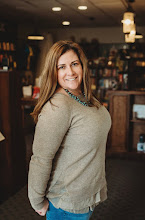Holly
Muller wrote this comment on my recent post, In This World:
It is
something I’ve been thinking about a lot recently. I have friends with children
a bit older than mine. They talk about how Instagram can be evil. Your child
knows if they weren’t invited to a party. Hashtags can be used to indicate who are
best friends, and who aren’t. Texting can lead to colorful language. Snapchat
is evil. (I might agree on that last one.) These conversations make me pause.
Have kids truly become more blunt? Are they more prone to exclude than twenty
years ago? I’m not sure.
I will be
forty next month. I grew up in the 80s. We had no cell phones, much to the
horror of my students. I still remember in the early nineties when my dad
brought home the bag phone – to be shared amongst the cars for safety. We did
not communicate with friends through Facebook, Twitter, Tumblr, or texts. I
tied up my home phone line constantly, begging my parents for my own number to
no avail. It was an awesome childhood.
That being said, I was left out. People were unkind. I knew if I wasn’t invited to the parties because people told you. Language was crude in notes we passed back and forth. (I was a master at writing notes and folding them in all sorts of creative ways.) When I look back at growing up and watch my students and former students interact, I don’t see a huge difference from my own childhood except for one – the parents can see what is going on now.
Don’t get me wrong, I’m all for parent involvement. I love my students’ parents. What I’m trying to say is that people were mean to me growing up – and I was mean to kids too. We made huge mistakes and often paid the price. But my parents often didn’t know about it. They didn’t read my notes, the ones I wrote or the ones that I received. I didn’t tell them about someone who left me out. I didn’t tell them when a friend was unkind. If it had been huge – someone threatening me, a never-ending bullying scenario, or something big – of course I would have told them. But friend issues, nope. They would have asked me why I considered that person my friend and told me to move on.
Today we get to see many of our kids’ interactions in real time. Most parents are friends with their children and their children’s friends on social media so they can keep an eye on them. We can easily get fired up when we see that someone is behaving in a way that is counter to what we believe in. My recommendation is to take a deep breath.
The best
way to teach our children is by modeling. Our kids (our own children and our
students) watch us ALL. THE. TIME. The way we post on social media teaches our
kids how to post. They way we react when upset teaches our children how to
react. The way we treat others teaches them how to treat others. We are their
biggest examples.
I keep that
thought in my head at all times. I’ve let students follow me on Instagram. I
won’t follow them back, but I figure if I can be a role model of how to behave
in a positive manor on social media, I’ll do it. And I try and remember one
huge thing – they are just kids.
Kids will screw up. They will use bad language (so do I, so I can’t say much there.) They will leave someone out; make someone feel bad, make mistakes. We all do. I still haven’t figured out a way to be perfect and I’m guessing they haven’t either. What I try and tell my kids – all my kids – is that at the end of the day I need to be happy with who I am. That means making mistakes, owning up to them, learning from them, and moving on. Social media isn’t evil. Instagram isn’t evil. And our kids aren’t evil. They are learning to navigate a world that adults haven’t figured out yet either. We can either be alarmists or we can help them find their way. I’m choosing the latter.
Kids will screw up. They will use bad language (so do I, so I can’t say much there.) They will leave someone out; make someone feel bad, make mistakes. We all do. I still haven’t figured out a way to be perfect and I’m guessing they haven’t either. What I try and tell my kids – all my kids – is that at the end of the day I need to be happy with who I am. That means making mistakes, owning up to them, learning from them, and moving on. Social media isn’t evil. Instagram isn’t evil. And our kids aren’t evil. They are learning to navigate a world that adults haven’t figured out yet either. We can either be alarmists or we can help them find their way. I’m choosing the latter.
















